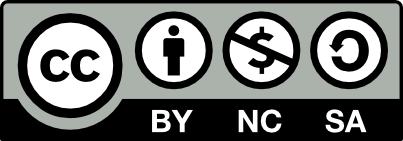/ The Creole as an agent of social struggles in Santo Domingo. The rebellion of Guaba
Abstract
One of the objectives of this work, perhaps the main one, is to define the moment in which we can speak of the origin of the Dominican people. To this end, it is necessary to highlight the role played by the Creole community in the struggles that took place at the end of the 16th century, culminating in the Guaba rebellion in 1606.This moment is crucial to define the Creole leadership in the revolt; the starting point of a local consciousness and led by an unprecedented element until then. For this date we cannot speak, and this is evident in the work of a dominantly white culture, nor a reference to the black African, much less the indigenous native, but on the contrary, of a synthesis of determinants, cultural, racial, and social models that resulted in a mixture of factors that originated the Creole as the main element in the Dominican social composition.
References
Benítez, Fernando, Los Primeros Mexicanos: La Vida Criolla en el Siglo XVI, Ciudad de México: Era Ediciones Sa, 2004.
Burset Flores, Luis Rafael,“En servicio y deservicio de Dios, del Rey. Las redes sociales del licenciado Francisco Manso de Contreras. Un estudio sobre el manejo de las relaciones personales y familiares por parte de un funcionario real en el Caribe a finales del siglo XVI para su lucro personal”. (tesis en proceso de publicación).
Cassá, Roberto, Historia social y económica de la República Dominicana, Tomo I, Santo Domingo: Ed. Alfa y Omega, 2003.
Gil Bermejo, Juana, La Española: Anotaciones Históricas, (1600-1650), Sevilla: CSIC, 1983.
Ibarra Cuesta, Jorge, De súbditos a ciudadanos, siglos XVII-XIX: El proceso de formación de las comunidades criollas en el Caribe Hispánico (Cuba-Puerto Rico y Santo Domingo), 2 Vol. (Santo Domingo: Archivo General de la Nación, 2012.
Inchaustegui, Joaquín Marino, Reales cédulas y correspondencias de gobernadores de Santo Domingo: De la regencia del cardenal Cisneros en delante, Madrid, Tomo I, Madrid: Gráficas Reunidas, 1958.
Lavalle, Bernard, Recherches sur l’apparition de la conscience creole dans la viceroyaute du Perú: L’antagonisme hispano-creole dans les ordres religieux (XVI-XII), Atelier National du reproduction de teses, Univertite de Lille III, 1982, 2 vols.
Lugo, Américo, Escritos Históricos, Andrés Blanco Díaz, editor, Santo Domingo: Banresevas, 2009.
Martínez Peláez, Severo, La Patria del Criollo: Ensayo de interpretación de la realidad colonial guatemalteca, México: Ed. Fondo de Cultura Económica, 2012.
Moya Pons, Frank, Manual de Historia dominicana, Santo Domingo: Editora Corripio, 1995.
Peña Batlle, Manuel Arturo, Obras escogidas, Vol. V, Santo Domingo: Colección Pensamiento Dominicano, 2009.
Rodríguez Demorizi, Emilio, Relaciones históricas de Santo Domingo, Ciudad Trujillo: Ed. Montalvo, Vol. II, 1945.
Rubio, Samuel, Historia de la música Española: Desde el ars nova hasta 1600, Madrid: Alianza Editorial, 1983.
Saint-Lu, Adré, Condición colonial y conciencia criolla en Guatemala (1524-1821), Guatemala: Ed. Universitaria, 1978.
License
Copyright (c) 2022 Journal ECOS UASD

This work is licensed under the Creative Commons Attribution-Noncommercial-NoDerivs 4.0 International license. https://creativecommons.org









